I want to know how to pray. It’s December 2021. Advent. A season of waiting. Everything is waiting. Waiting for the pandemic to be over. Waiting for our leaders to start acting like we’re in a climate emergency. Waiting for our hemisphere to tilt back into the light. We are hunkered down for our second COVID Christmas, separated from what we need most: each other.
Meanwhile, in British Columbia, the city of Abbotsford is under water. The town of Merritt has been evacuated. Fifteen thousand people across British Columbia have fled their homes. 628,000 chickens have drowned. 420 dairy cows and 12,000 pigs are dead. One hundred and ten beehives are swamped. Mere months ago a heat wave killed more than 600 humans and cooked a billion sea creatures. Then came the wildfires that incinerated towns and turned forests into thickets of blackened pencils and baked spongy soils into hardened surfaces that now funnel the rain in torrents.
Heat, fire and flood. Climate calamities come in threes now. And still our leaders bicker over diluted promises, unlikely to be kept and wholly inadequate for the emergency at hand. And still our government finds the resources to send a plane full of RCMP to invade Wet’suwet’en territory and arrest land defenders blocking a fossil fuel pipeline being built across their sovereign territory.
Earlier in the year I travelled to Wet’suwet’en territory to lend my support to the pipeline resisters. I chopped wood, washed dishes, and listened to Wet’suwet’en elders talk about their spiritual relationship with the land. Now I’m watching news footage of RCMP in battle gear forcing unarmed Wet’suwet’en women off their land at gunpoint. I join a handful of friends who carry banners to the RCMP headquarters in Winnipeg. We block traffic for an hour and a half in a bitter wind. “Indigenous sovereignty is climate action,” our banners declare. “RCMP off the Yintah.” Truckers curse us. A bus driver mutters to his passengers that he wishes he could run us down, his words later reported to me by a friend who happened to be on the bus.
Back at home I warm up with a bowl of soup. I read an op-ed in the National Post by a group of Wet’suwet’en people who disagree with the land defenders. “Militant actions” are not the Wet’suwet’en way, they say. They want outsiders like me to stay out of their affairs. Suddenly my energy is gone. I’m deflated, like an inner tube gone slack, floored by a wave of doubt. If I can have only one thing, I want it to be the assurance that I am doing the right thing. If the world crumbles, I want to know that at least I did what I was called to do. Now, even that small certainty seems out of reach.
I need a light, something to guide me. I ask my spiritual director for a practice or a teaching. Something to help me when despair washes over me at unexpected moments. Look for Spirit, she reminds me. “There’s a mystery bigger than we can know with our human senses. You’re part of that mystery, I fully believe that.” She tells me to walk in the forest. Read a poem. Light a candle. Keep trying. It takes work. There are no shortcuts.
My partner, Mona, and I hang a star in our window. We tramp a spiral in the snow in our front yard and walk the labyrinth with our children, placing candles in jars on stumps as we sing: “Hope before us, hope behind us, hope under our feet.” Our neighbour comes out to smoke on his front porch and watches our ritual with puzzled amusement. “I know you got your whole environmental thing going on,” he says, leaning over the fence. “You should try sprinkling diesel fuel around your foundation. Keeps the mice from getting in. Old farm trick.”
We go cross-country skiing in the forest. Our daughter cries because her hands are cold, and I offer her pieces of gingerbread to keep her moving until she warms up. I watch her struggle up a hill between shaggy spruces, her snowsuited legs soldiering on. The sun lays bars of smoke blue and lemon yellow across our path. My chest hurts with love for her and for the bewitching, fragile world she inhabits. We’re still here, I tell myself. We’re alive. The earth is alive. I cannot let myself forget it. Hope before us, hope behind us, hope under our feet.
I watch a video on YouTube, footage from an event livestreamed almost two years ago, on February 4, 2019. Four Catholic activists trudge through knee-deep snow toward a fenced-in valve shut-off site along the Line 3 pipeline that runs parallel to the highway about 80 kilometres west of Duluth. They carry a pair of bolt cutters and an orange Home Depot bucket full of rosaries, prayer flags, tobacco ties, and other sacred objects people have sent them from all over the country.
They snip the padlock on the fence, enter the valve site, and attempt to shut off the flow of oil, but they are missing the right size of Allen wrench to turn a screw that will give them access to the valve. They try to fashion a tool from a tiny metal crucifix, asking Christ for forgiveness as they remove his tiny suffering body from the metal cross. They hang rosaries on the fence and on the pipe itself. They call on saints to help them, saints who also broke the law for the greater good: Franz Jägerstätter, executed in 1943 for refusing to join the Nazi army, and Philip Berrigan, arrested more than one hundred times for acts of civil disobedience protesting nuclear weapons.
As I watch these four strangers fumble with inadequate tools and faltering faith, something ignites in me. These disobedient saints are swimming in a current I cannot see but can surely feel. Their wavering voices join together in a hymn. It’s a song I’ve heard before but only in church. Here at the scene of a crime against the powers of fossil fuel capitalism, the words have a new meaning:
From the halls of power to the fortress tower, not a stone will be left on stone.
Let the king beware for your justice tears every tyrant from his throne.
The hungry poor shall weep no more for the food they can never earn.
There are tables spread, every mouth be fed, for the world is about to turn.
Could the world be about to turn?
The song brings tears to my eyes. The melody is an old Irish folk tune, the words adapted from a song attributed to Mary, the mother of Jesus. Single, pregnant, poor, a member of an occupied people, she has just learned her child will defy an empire. She doesn’t know it will cost him his life. Through my computer speakers I can hear the police sirens coming.
Josiah Neufeld is a writer living in Winnipeg, where he attends Hope Mennonite Church. The above is excerpted and adapted from The Temple at the End of the Universe: A Search for Spirituality in the Anthropocene, published by House of Anansi Press in June 2023. Reprinted and adapted with permission.
For discussion
1. What are the circumstances that bring you to the brink of despair?
2. Josiah Neufeld discovers glimmers of hope while cross-country skiing in the forest. Where or how do you find hope when life seems full of tragedy?
3. Can you think of situations in which saintly people deliberately broke the law for the greater good? If you had been there at the time, would you have joined them?
4. What are the songs or hymns that bring tears to your eyes? How much passion do you have for social justice?
5. What are some traditional ways that Christians can offer hope to each other? Are there other ways that our faith can support optimism for the future?
—By Barb Draper


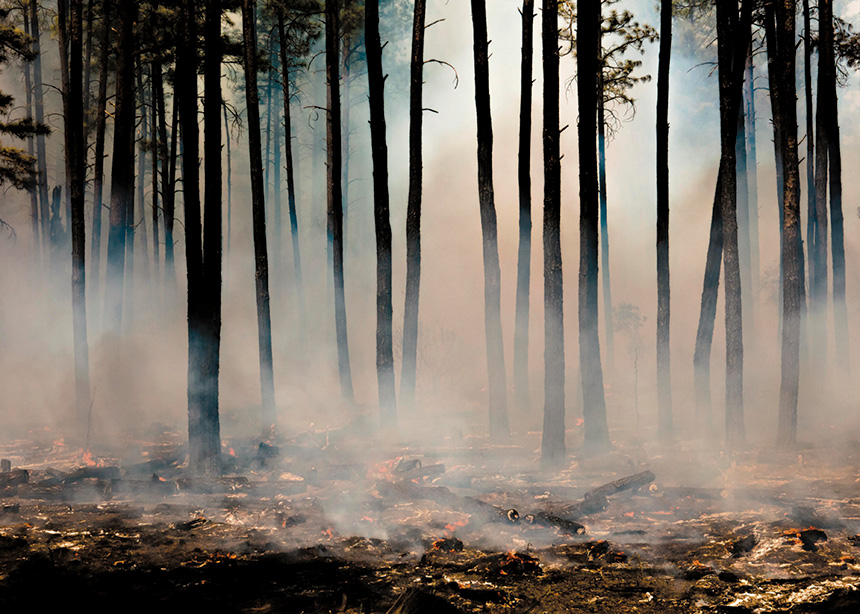
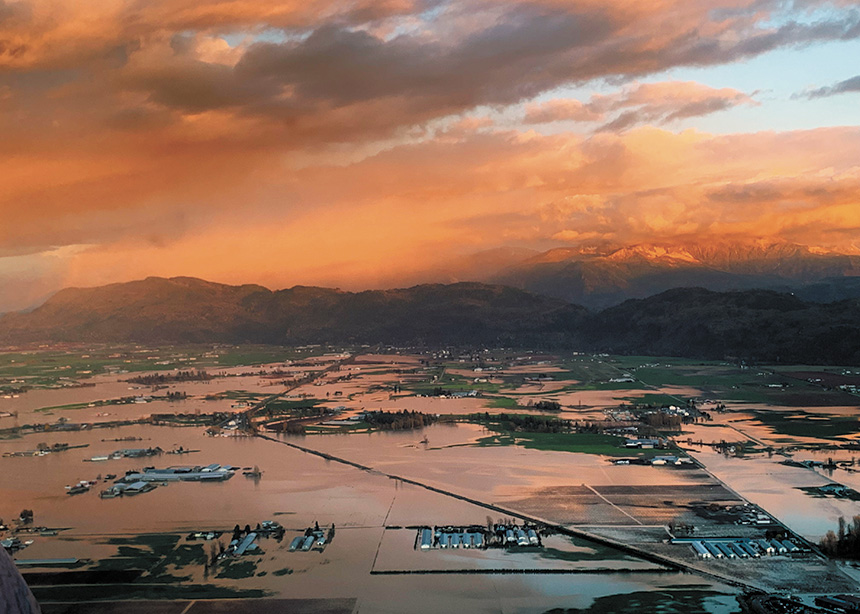
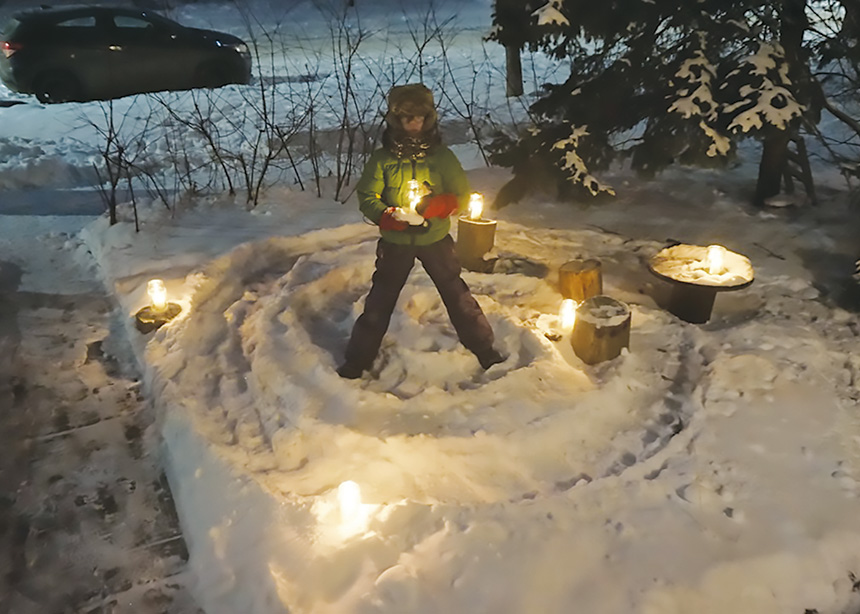

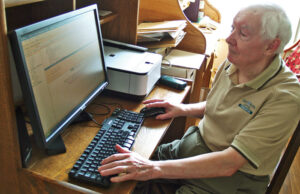
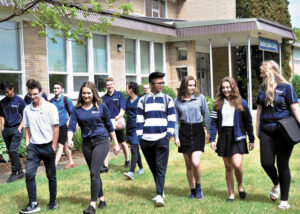

Leave a Reply
You must be logged in to post a comment.